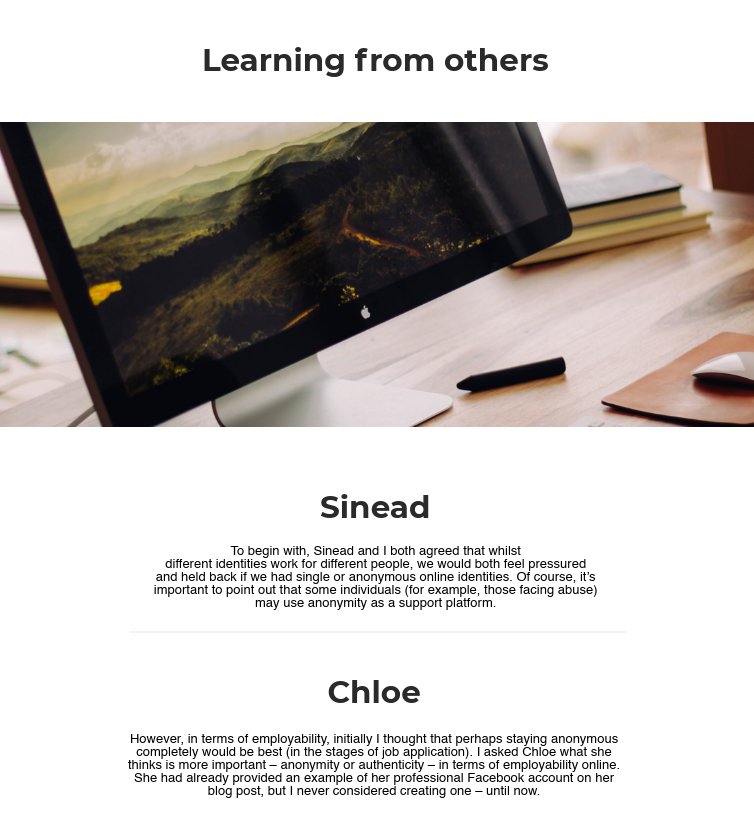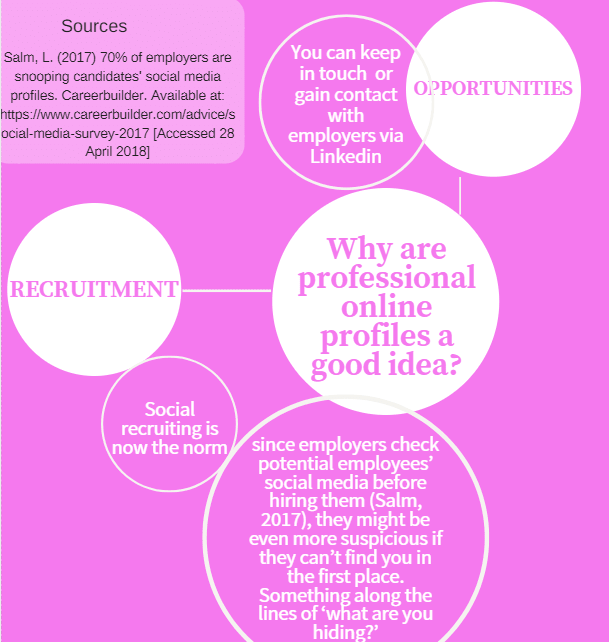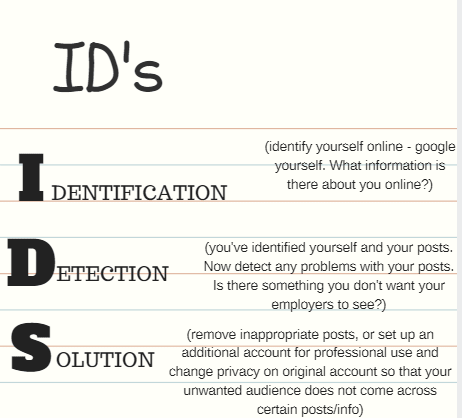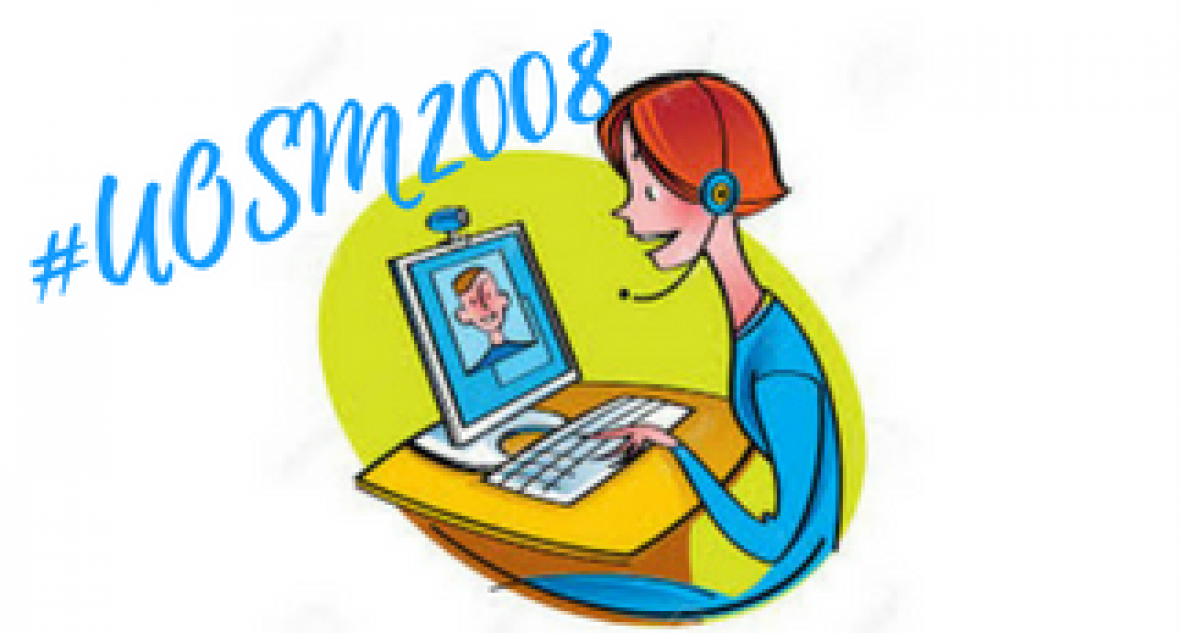This past week has taught me a lot about online identity – the management, the lasting effect, the benefits and drawbacks of online identity. But what stands out to me is the importance of having an online professional identity. Whilst this is not a requirement for all, on reflection, I feel that this topic has made it a requirement for me. This is how:
Learning from others

Chloe made me realize just how important it is to have a professional online identity, by exemplifying her Facebook use:
“For example, I found it easier to contact participants for my dissertation over social media due to the instant messaging. Managers for my job also often contact myself and my colleagues over Facebook and we are all added to a Facebook group where we can pick up shifts!” (Chloe’s comment, 2018)
Additionally, she shared an interesting article with me through which I learned more about the benefits of using Facebook in the workplace (SynergyCreative, 2017).
This is what I learned about the benefits of having a professional online profile:

As George (2016) suggests, many companies have now implemented social media policies into employee handbooks. This highlights for me, that continuously managing social media profiles is just as important.
Conveniently for the application of this topic to the real world, this week Presenter Maya Jama’s offensive tweets from 2012 resurfaced, potentially resulting in loss of job opportunities for her in future (Freedman, 2018). This showcases the ever-lasting effects of posts, and that social media never forgives.
In contrast to my original blog post, Jama’s story demonstrates that even experienced digital users are at risk.
I’ve thought of 3 main tips for digital users to avoid such risks – ID’S (short for identities!):

Evaluating progress

To conclude
It has been really useful to reflect on my progress and learning so far, as sadly, the next blog post for this module will be my last. But I will definitely try to blog about other topics – I can’t let the skills I have gained through this module go to waste.
I look forward to what my final reflection will bring…
Word count: 295
Comments
References
Freedman, J. (2018) Maya Jama apologises after offensive tweet resurfaces – weeks after being announced as face of Maybelline every colour range. OK! Available at: https://www.ok.co.uk/celebrity-news/1355666/maya-jama-issues-apology-dark-skinned-bs-racist-tweet-stormzy-radio-1-maybelline-fit-me-diversity [Accessed 27 April 2018].
George, J. (2016) Maintaining Personal vs. Professional Identity on Social Media. Linkedin. Available at: https://www.linkedin.com/pulse/maintaining-personal-vs-professional-identity-social-jaevon/ [Accessed 28 April 2018].
Salm, L. (2017) 70% of employers are snooping candidates’ social media profiles. Careerbuilder. Available at: https://www.careerbuilder.com/advice/social-media-survey-2017 [Accessed 28 April 2018].
SynergyCreative (2017) The Top 6 Benefits of Facebook’s Workplace ESN. Synergy. Available at: http://www.synergycreative.co.uk/latest-articles/the-top-6-benefits-of-facebook-s-workplace-esn. [Accessed 29 April 2018].







